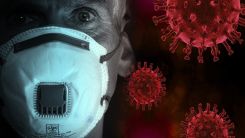
Staff Reporter


The 3 Best Sore Throat Relief Products on Amazon for Immediate Comfort and Recovery

AI Predicts “A Halting Of Infections” Around April 20th But Warns Catastrophe If Social Distancing Relax Too Soon

Remdesivir Vs Coronavirus: Nearly All Patients Discharged in Less Than A Week, Only 2 Died, Phase 3 Trials Showed

No More Tumor! Daily Dose of Aspirin Claimed to Lower Risk of Different Cancers

4 Best Hair Conditioners Your Dry Hair is Guaranteed to Love

What the Research Says About a Cluttered Desk

Prof. Thomas Borody Cracks the Code for Treating Crohn's Disease with Breakthrough Cure: Fecal Microbiota Transplant

Study Finds Over 600 People in the US are Experiencing 'Strange' Dreaming Phenomenon Amid Coronavirus Pandemic: Why is That?

The Best Eco-Friendly Wet Wipes Available Now in Amazon!
NASA's Kepler Spacecraft Possibly Found Earth 2.0

Coronavirus Patient’s First Symptom was Delirium; Neurologists Form Theory that Virus Could Invade the Brain

With 60 People Dying on Average Daily, Suffolk County Prepares to Keep COVID-19 Victims in an Unused Meat Processing Plant
Coronavirus: HK Airport Screening System That Includes Requiring Arriving Passengers to Provide Deep-Throat Saliva Samples Holds Lessons For Travel Industry

Tech Company Claims UV LED Could Kill Coronavirus in 30 Seconds in Support to Research by UC Santa Barbara

'Forgotten' Viking Mountain Passage Exposed in Norway as Glacier Caps Melt; A Myriad of Stunning Relics Found
Scientists Found Four Times the Amount of Coarse Dust in the Atmosphere Then Previously Thought

A Quicker Solution to Coronavirus May Be Vaccines That Are 50% Effective, Scientists Claim

Tel Aviv Jackals Desperately Looking for Food Due to Lockdown
Michigan Prison Emerged as a Hotspot for Coronavirus Cases, Inmates and Officers Worry for their Health

Teen in Italy Showed Unusual Toe Marks That Are Now Considered Among Bizaare Symptoms of COVID-19
60-Degree, 60-Minute Rule Not Enough! Coronavirus Can Survive Prolonged Exposure to High Heat, Says New Experiment

COVID-19 Positive Nurse From Ohio Gave Birth via Cesarian Section While in Coma; What Happened to the Baby?
Stress Can Remodel Your Brain! Discover How to Prevent and Reverse It

C-Section Female Babies Have a Higher Risk of Developing Diabetes and Obesity Than Those Delivered Vaginally
Large Earthquakes Found to Follow The Mathematical Pattern Called 'Devil's Staircase'

Stray Dogs, not Pangolins, Helped Bats Transfer the Coronavirus to Humans, New Study Reveals

Montana Family Rescues Three Missing Bear Cubs Cowboy-Style
Nutmeg Challenge on TikTok: Teens at Risk for Substance Intoxication due to Addictive Compound 'Myristicin'
Herd Immunity Vs Coronavirus: How Does it Work and the Role of Vaccines in Ending the Pandemic
Most Popular

Can Humans Achieve Immortality? Latest Scientific Advances in Longevity & Lifespan

Ocean Exploration: How Deep Sea Research and Marine Technology Reveal the Ocean Floor Without Going There

What Happens to the Body During Sleep? Brain Repair, REM Cycles, and Nightly Recovery

James Webb Space Telescope Discovers Closest Galaxy to the Big Bang Ever Observed




